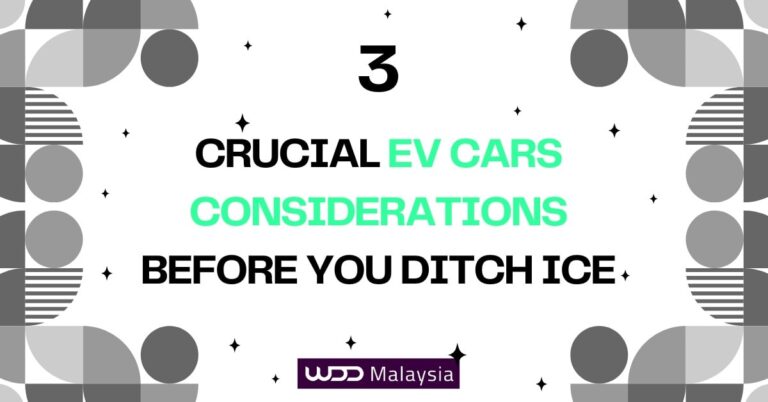Quantum computing signifies a revolutionary advancement in technology, offering tremendous potential for digital marketing. By processing complex datasets at unparalleled speeds, it reshapes the understanding of consumer behavior, enabling hyper-personalized strategies that were previously unimaginable. This empowers marketers to optimize campaigns and gain deeper insights into customer preferences, leading to more effective marketing strategies and increased engagement.
Embracing quantum computing is essential for staying competitive, as it allows for real-time decision-making and adapts strategies to ever-changing market conditions. Its transformative power lies in uncovering patterns and insights that classical computers might miss, providing a competitive edge as marketers explore quantum technology to revolutionize brand interactions. The future impact of large-scale quantum computers on digital marketing could further enhance these capabilities, driving unprecedented advancements in the field.
Understanding Basics of Quantum Computing
Quantum computers harness the power of quantum bits, or qubits, which can exist in multiple states simultaneously due to quantum mechanics, unlike classical computers that rely on binary bits. This unique property, known as superposition, allows quantum computers to process vast amounts of complex data and perform multiple calculations at once, making them powerful tools for solving problems in fields like chemistry and materials science. Quantum chemistry, for instance, benefits from enhanced simulation capabilities for complex molecular interactions, drug discovery, and materials science.
Additionally, qubits exhibit quantum entanglement, where the state of one qubit instantaneously affects another, enabling quantum algorithms to efficiently solve complex optimization problems. Quantum error correction is crucial to maintaining qubit integrity, ensuring accurate computations. As researchers develop efficient quantum algorithms and improve quantum hardware, the potential of quantum computers to tackle large-scale calculations and optimization problems becomes increasingly clear, promising transformative applications in drug discovery, life sciences, and artificial intelligence.
Differences from Classical Computing
Quantum computers offer unparalleled speed and efficiency compared to classical systems, processing information exponentially faster through advanced quantum algorithms. This remarkable capability leads to quicker results, making quantum computers ideal for tasks involving large datasets and intricate data analysis. The shift towards faster computing solutions, often referred to as the “Quantum Leap Today,” signifies a transformative change in how industries approach data processing.
Quantum Gates and quantum circuits play a crucial role in facilitating rapid data processing, significantly contributing to the overall efficiency of quantum systems. This technological advancement empowers industries to make real-time decisions, adapt to ever-changing conditions, and ultimately transform their operations by leveraging the exceptional speed of quantum computers. In addition to speed, quantum computers excel in solving complex problems that challenge classical systems, such as optimization and pattern recognition.
The unique properties of qubits allow these powerful tools to explore multiple solutions simultaneously, greatly enhancing their problem-solving capabilities. Quantum States enable these machines to find optimal answers swiftly, showcasing the growing importance of quantum problem-solving techniques in various fields. Quantum Gates ensure precise control over computations, thereby enhancing the accuracy of solutions. Machine learning methods, evolving alongside traditional quantum simulation techniques, complement these advancements by optimizing various problems without entirely replacing classical methods.
The concept of “Quantum Leap Today” highlights the significance of these advancements, as quantum computers continue to push the boundaries of what is possible, providing industries with innovative solutions to previously insurmountable challenges.
Quantum Computing in Digital Marketing
Quantum computing is transforming the landscape of digital marketing by revolutionizing data analysis and enabling marketers to leverage quantum algorithms to swiftly process complex datasets. This capability uncovers deep insights into consumer behavior, enhancing the ability to predict trends and preferences. As a result, marketers gain a competitive edge by utilizing these insights, making digital marketing strategies more precise and effective. Quantum AI has the potential to further enhance traditional AI models for more effective marketing strategies.
The integration of quantum technology in marketing prioritizes data-driven decision-making, allowing businesses to create strategies that resonate with their target audiences and lead to increased engagement and conversion rates. In addition to improving data analysis, quantum computing opens up new opportunities for hyper-personalization and precise targeting. By analyzing vast amounts of data, marketers can tailor content to individual preferences, ensuring that marketing campaigns connect with consumers on a deeper level.
This approach results in higher engagement rates through personalized campaigns, as quantum technology enables marketers to target audiences with unprecedented precision. The shift towards individualized experiences represents a fundamental change in the marketing landscape, as the quantum marketing era aspires to create meaningful connections with consumers and foster brand loyalty.
Benefits of Quantum Computing for Marketers
Quantum computing revolutionizes real-time analytics by enabling marketers to access data insights instantly, transforming marketing strategies. With quantum algorithms capable of processing vast datasets swiftly, marketers gain a comprehensive view of consumer behavior and drive informed decisions. This real-time capability ensures businesses can adapt quickly to market changes, keeping marketers agile in a rapidly evolving landscape.
The enhanced speed and efficiency of quantum computing allow for the seamless integration of real-time analytics into everyday marketing operations, providing a powerful tool for marketers to stay ahead of the competition. In addition to real-time analytics, quantum computing significantly enhances decision-making processes by enabling marketers to analyze complex data efficiently. Quantum algorithms excel at identifying patterns and trends, making marketing strategies more precise and effective. Machine learning techniques, particularly neural networks, are increasingly being integrated with quantum computing for more precise and effective marketing strategies.
By empowering marketers with actionable insights, quantum computing facilitates data-driven decisions that confidently shape the future of marketing. As a result, businesses can achieve superior outcomes through enhanced decision-making, leveraging quantum technology to navigate the complexities of modern marketing. This advancement not only optimizes current marketing efforts but also paves the way for innovative strategies that harness the full potential of quantum insights.
Competitive Advantage
Quantum computing is revolutionizing marketing strategies by fueling innovation and enabling marketers to explore new possibilities. With the power of quantum technology, marketers can leverage advanced quantum algorithms to develop creative and unique campaigns that stand out in the competitive landscape. This technology allows businesses to differentiate themselves by harnessing quantum insights, driving innovation in digital marketing, and embracing the future of marketing with quantum advancements.
As a result, marketers are at the forefront of cutting-edge strategies, leading the way in transforming how brands interact with consumers. Moreover, quantum computing keeps marketers ahead of trends by anticipating shifts in consumer preferences and predicting emerging patterns. The predictive capabilities of quantum algorithms allow businesses to proactively adjust their marketing strategies, providing a significant competitive edge.
By capitalizing on opportunities before competitors, marketers can rely on quantum foresight to remain trendsetters in the industry. This forward-thinking approach ensures that marketers not only keep pace with the evolving market but also set the trends that others follow. Quantum technology empowers marketers to anticipate changes and seize opportunities, ensuring they remain leaders in the ever-changing landscape of digital marketing.
Implementing Quantum Algorithms and Strategies
Steps to Integrate Quantum Computing
Assessing current capabilities involves evaluating the existing technological infrastructure to identify areas where quantum computing can provide significant benefits. This process requires determining the organization’s readiness for quantum integration by analyzing current data processing capabilities and considering the potential impact on marketing strategies. Additionally, it is important to consider the future potential and readiness for large scale quantum computers in revolutionizing marketing strategies.
It is essential to ensure alignment with business goals and objectives to maximize the advantages of quantum technology. Partnering with tech providers is a crucial step in this journey. Researching potential technology partners specializing in quantum computing and selecting those with a proven track record in the industry is vital. Collaborating with experts to develop tailored solutions and establishing clear communication channels with technology partners can facilitate successful implementation.
Defining roles and responsibilities ensures smooth execution, while monitoring progress and adjusting strategies as needed can help maintain the effectiveness of quantum computing initiatives.
Overcoming Challenges with Quantum Error Correction
When considering the adoption of quantum computing, it is crucial to analyze the financial implications thoroughly. Developing a comprehensive budget that accounts for both initial investments and ongoing expenses is essential. This includes identifying available resources and allocating them effectively to ensure optimal use. Exploring funding opportunities can provide additional support for quantum initiatives, while evaluating the return on investment helps prioritize cost-effective solutions without compromising quality.
Equally important is identifying the skills required for successful integration of quantum computing. Developing training programs to enhance employee expertise and encouraging continuous learning and professional development are vital steps. Collaborating with educational institutions for specialized training can further bolster the workforce’s capabilities. Quantum AI can play a significant role in enhancing employee expertise and overcoming integration challenges by leveraging the unique advantages of qubits and advanced AI models.
By fostering a culture of innovation and adaptability within the organization, businesses can ensure they are well-prepared for the quantum leap forward. Measuring the effectiveness of training initiatives and making necessary improvements will help maintain a skilled and agile team, ready to tackle the challenges and opportunities presented by quantum computing.
Common Questions on Quantum Computing in Marketing
Quantum computing is revolutionizing the marketing industry by providing unprecedented computational power. This technology allows marketers to analyze vast amounts of data more efficiently, leading to more accurate customer insights and personalized marketing strategies. By leveraging quantum computing, businesses can optimize their marketing campaigns, predict consumer behavior, and improve decision-making processes.
Additionally, the use of quantum bits, or qubits, in quantum computing significantly enhances AI capabilities, enabling more effective marketing strategies.
What is the cost of implementing quantum hardware?
Implementing quantum computing requires a substantial investment, as companies must account for hardware expenses, software development, and integration costs. Collaborating with technology providers could incur additional fees, making it essential to budget for training and skill development. Evaluating the return on investment is crucial to justify these costs and ensure that the benefits outweigh the expenditures. Additionally, the financial implications of large-scale quantum computers could be significant, with potential benefits in fields such as finance and drug discovery.
How secure is quantum computing for data?
Quantum computing introduces groundbreaking security features, with quantum encryption offering robust protection against cyber threats, making data breaches significantly less likely through advanced quantum algorithms. As businesses aim to implement quantum solutions, it is crucial to assess current security measures and ensure that security protocols align with industry standards. Quantum AI also plays a vital role in protecting data against cyber threats, leveraging the unique advantages of qubits to enhance security.
In the realm of digital marketing, quantum computing revolutionizes the field by providing marketers with unprecedented insights, accelerating data analysis, and enhancing personalization. By adopting quantum strategies, marketers gain a competitive edge, transforming their marketing efforts with innovative approaches to stay ahead in the industry. The endless possibilities offered by quantum computing




